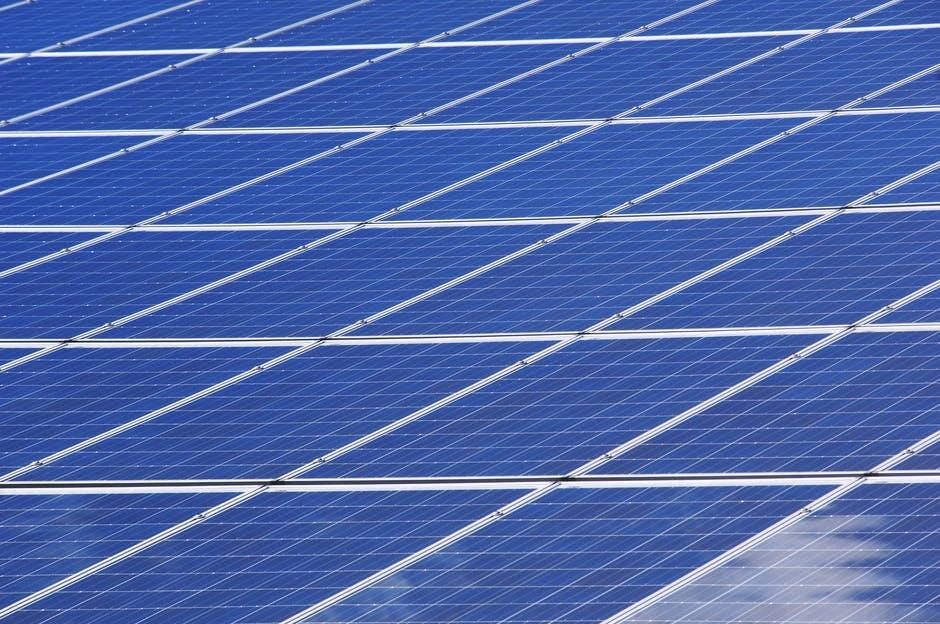Did you know that the efficiency of solar panels typically falls between 15 to 20%?
Solar panels are an essential component of any off-grid solar system. Their efficiency can impact the performance and effectiveness of your system. This is why it’s essential to maximize the efficiency of your off grid solar system.
In this article, we will share 30 tips and tricks to help you increase the efficiency of your solar system. Keep reading to help you get the most out of your investment.
Choose High-Quality Solar Panels
The quality of your solar panels can have a significant impact on their efficiency. It’s essential to research and invest in high-quality panels from reputable brands.
While they may be more expensive upfront, they will likely yield better long-term results. Look for panels with a higher efficiency rating to get the most out of your solar system.
Moreover, high-quality panels often come with warranties. This can provide added protection and peace of mind for your investment.
Optimize Panel Placement
The placement of your solar panels can also affect their efficiency. Make sure they are installed in a location that receives ample sunlight throughout the day. Aim to have them facing south and at an angle between 10 to 30 degrees for optimal sun exposure.
Avoid placing panels under trees or buildings that may cast shadows. Regularly check and adjust the panel placement if necessary.
Keep Panels Clean
Dirt, debris, and dust can accumulate on your solar panels over time. It can block sunlight and reduce efficiency. It’s crucial to clean your panels to maintain their effectiveness.
Use a soft cloth or sponge with mild soap and water to wipe away any grime. Avoid using harsh chemicals or abrasive materials that could damage the panels.
Use Solar Tracking Systems
Solar tracking systems can automatically adjust the position of your panels. It helps the panels maintain their optimal angle as the sun moves across the sky.
This technology can increase efficiency by up to 20%. This is especially useful for those with limited space for solar panel placement.
Moreover, solar tracking systems can also increase the lifespan of your panels. It reduces stress and wear from being in the same position.
Use Energy-Efficient Appliances
The efficiency of your solar system is also dependent on the appliances that are connected to it. Using energy-efficient appliances can reduce your electricity consumption. This increases the efficiency of your system.
Look for appliances with energy-saving features, such as Energy Star certification. These appliances use less electricity without compromising their performance.
Track Energy Usage
Monitoring your energy usage can help you identify areas where you can improve efficiency. Keep track of daily and monthly energy consumption to see if there are any patterns or abnormalities.
This information can help you make informed decisions on potential changes or upgrades to your system. It can also help you identify any issues that may be affecting the efficiency of your system.
Use LED Lights
Replacing light bulbs with LED lights can reduce your energy consumption and improve efficiency. LEDs use up to 75% less energy and last up to 25 times longer than traditional bulbs.
Moreover, they produce less heat, making them ideal for an off-grid solar system that relies on batteries for energy storage. They also come in a variety of colors and styles to suit your needs and preferences.
Regularly Check Battery Connections
Loose or corroded battery connections can impact the efficiency of your off-grid solar system. It’s essential to regularly inspect and clean the connections to ensure they are secure and functioning properly.
If you notice any corrosion, gently clean it with a mixture of baking soda and water. It’s also advisable to apply a protective coating on the connections to prevent future corrosion.
Use Charge Controllers
Charge controllers help regulate the flow of electricity from your solar panels to your batteries. They prevent overcharging, which can damage both the batteries and the panels.
Make sure to choose a charge controller that is compatible with your panels and batteries for optimal efficiency. You may also consider investing in an MPPT (Maximum Power Point Tracking) charge controller. This can increase the efficiency of your system by up to 30%.
Insulate Battery Banks
Insulating your battery banks can help them maintain a stable temperature, which can improve their efficiency and lifespan. It also helps prevent extreme temperature fluctuations that can cause damage or reduce performance.
You can use insulation materials such as foam or fiberglass to cover your battery banks. Make sure to leave enough space for ventilation to avoid overheating.
Invest in Solar Cooling Systems
Solar cooling systems can help reduce the heat generated by your off-grid solar system. Excessive heat can decrease the efficiency of your panels, reducing their lifespan.
Consider investing in products such as solar-powered fans or ventilation systems to keep your system cool. This can also help reduce your energy consumption and increase efficiency.
Upgrade to High-Efficiency Inverters
Inverters are responsible for converting the direct current electricity generated by solar panels into alternating current electricity used in homes and buildings. Upgrading to high-efficiency inverters can improve the efficiency of your solar system.
Look for inverters with a high-efficiency rating and features. This can help maximize the amount of electricity that is converted and utilized.
Connect Multiple Panels in Series
Connecting multiple panels in series can increase the voltage of your solar system. This is because higher voltages require less current, reducing energy loss during transmission.
Before connecting panels in series, make sure they have the same voltage and orientation. This method is best for long distances between the panels and the batteries.
Use Insulated Wiring
Wiring that is not properly insulated can lead to energy loss and decreased efficiency. Make sure to use high-quality, insulated wiring for all connections throughout your solar system.
It’s also essential to keep wiring as short and direct as possible to reduce energy loss. Regularly inspect and replace any worn or damaged wiring.
Invest in Solar Batteries
Solar batteries allow you to store excess energy generated by your solar panels for later use. This helps to maximize the efficiency of your system as it reduces waste. It also ensures a constant supply of electricity even during low sunlight days or at night.
When choosing solar batteries, look for high-quality options with a long lifespan. They should also have the ability to withstand frequent charging and discharging cycles. This will help you get the most out of your investment in solar batteries.
Use Reflective Surfaces
Placing reflective surfaces like mirrors near your solar panels can help increase their efficiency. The reflective surfaces can bounce sunlight onto the panels, increasing their exposure and energy production.
Just make sure to properly position the reflective surfaces. This is to avoid casting shadows or causing glare that could reduce efficiency.
Choose Low-Resistance Materials
When building or upgrading your solar system, choose low-resistance materials for all connections. High resistance can lead to energy loss and decreased efficiency.
Copper is a common material used in solar systems as it has low resistance and is durable. Make sure to use high-quality copper wiring, connectors, and busbars for efficiency.
Avoid Overloading Your System
Overloading your off-grid solar system can cause it to operate at a lower efficiency and potentially lead to damage. Make sure you have enough capacity for your energy needs, taking into account peak usage times.
Consider investing in a larger solar system or additional battery storage if your energy needs increase. This will help prevent overloading and maintain optimal efficiency.
Limit Energy Consumption During Peak Times
Energy usage during peak times can be more expensive and potentially strain your off-grid solar system. To maximize efficiency, limit energy consumption during these times.
This could include using larger appliances during off-peak hours or implementing energy-saving habits during peak times. This can help reduce stress on your system and improve its performance.
Use Timers and Sensors
Timers and sensors can help regulate the usage of certain appliances connected to your solar system. They can turn appliances on and off at specific times or when they are not in use, helping to reduce energy consumption.
Consider using timers for appliances that are not frequently used. This can include outdoor lights or pool pumps. This can help maximize efficiency and save on energy costs.
Adapt Landscaping for Optimal Sunlight
The surrounding landscape can impact the efficiency of your solar panels. Trees and tall structures can cast shadows on your panels. This can reduce their sunlight exposure.
Regularly trim trees and manage the landscape around your solar array. This is to minimize shading and ensure your panels receive optimal sunlight throughout the day.
Use Solar Water Heaters
Solar water heaters use the sun’s energy to heat water, reducing the need for electricity or gas-powered water heaters. This can help decrease your energy consumption and increase efficiency.
There are various types of solar water heaters available. This includes batch systems, flat plate collectors, and evacuated tube collectors. Choose the one that best suits your needs and budget.
Consider Passive Solar Design
Passive solar design involves using the sun’s energy to heat and cool a building naturally. This includes using materials and techniques to capture, store, and distribute solar energy.
Implementing a passive solar design can reduce your reliance on electricity. It can also increase the efficiency of your solar system.
This could include features such as south-facing windows for natural light. It can also include insulation for temperature control.
Keep Batteries Charged
Charging your batteries to their full capacity can help maintain their efficiency. Avoid leaving them in a discharged state for extended periods. This can lead to sulfation, damaging the battery.
Consider investing in a battery monitoring system to keep track of the charge levels. This can also help identify any potential issues with your batteries, allowing you to address them promptly.
Regularly Service and Maintain Your System
Proper maintenance is crucial for the efficiency and longevity of your solar system. Make sure to regularly clean, inspect, and service all components of your system.
This includes panels, batteries, connections, wiring, inverters, and other equipment. Keep a schedule and record of all maintenance tasks to ensure they are done regularly.
Explore Government Incentives and Rebates
Many governments offer incentives for individuals and businesses to adopt solar energy. Research and take advantage of these programs to offset the initial costs of your solar system.
An example is the Investment Tax Credit or ITC. This allows individuals to deduct a percentage of their solar system’s cost from their federal taxes. Saving with ITC can reduce the costs of a solar system by up to 26%.
You can use these savings to upgrade to more efficient equipment or expand your solar system. Research the programs available in your area to maximize savings and efficiency.
Consider Your Roof Material
When installing solar panels, consider the type and condition of your roof. Certain materials are more compatible with solar panel installation than others.
Additionally, if your roof is old or in poor condition, it may be worth investing in repairs or replacement before installing solar panels. This can ensure a secure and long-lasting foundation for your system.
Plan for Future Expansion
When installing or upgrading your system, consider your future energy needs. Design your system with the capacity for expansion to accommodate additional panels, batteries, or other components.
This foresight ensures that your system can grow with your energy demands without requiring a complete overhaul. It can also help reduce costs and increase efficiency in the long run.
Optimizing Your Off Grid Solar System
Maximizing the efficiency of your off grid solar system requires careful planning, investment in quality equipment, and regular maintenance. By implementing these tips, you can reduce energy waste and costs while also increasing the lifespan of your system.
Keep educating yourself on new technologies and techniques to continually improve the efficiency of your off-grid solar system. There are always ways to further optimize your system for maximum efficiency and savings. So start making changes today to enjoy a more efficient energy source!
Take a moment to browse through some of our other blog posts for more guides and tips.





Be First to Comment